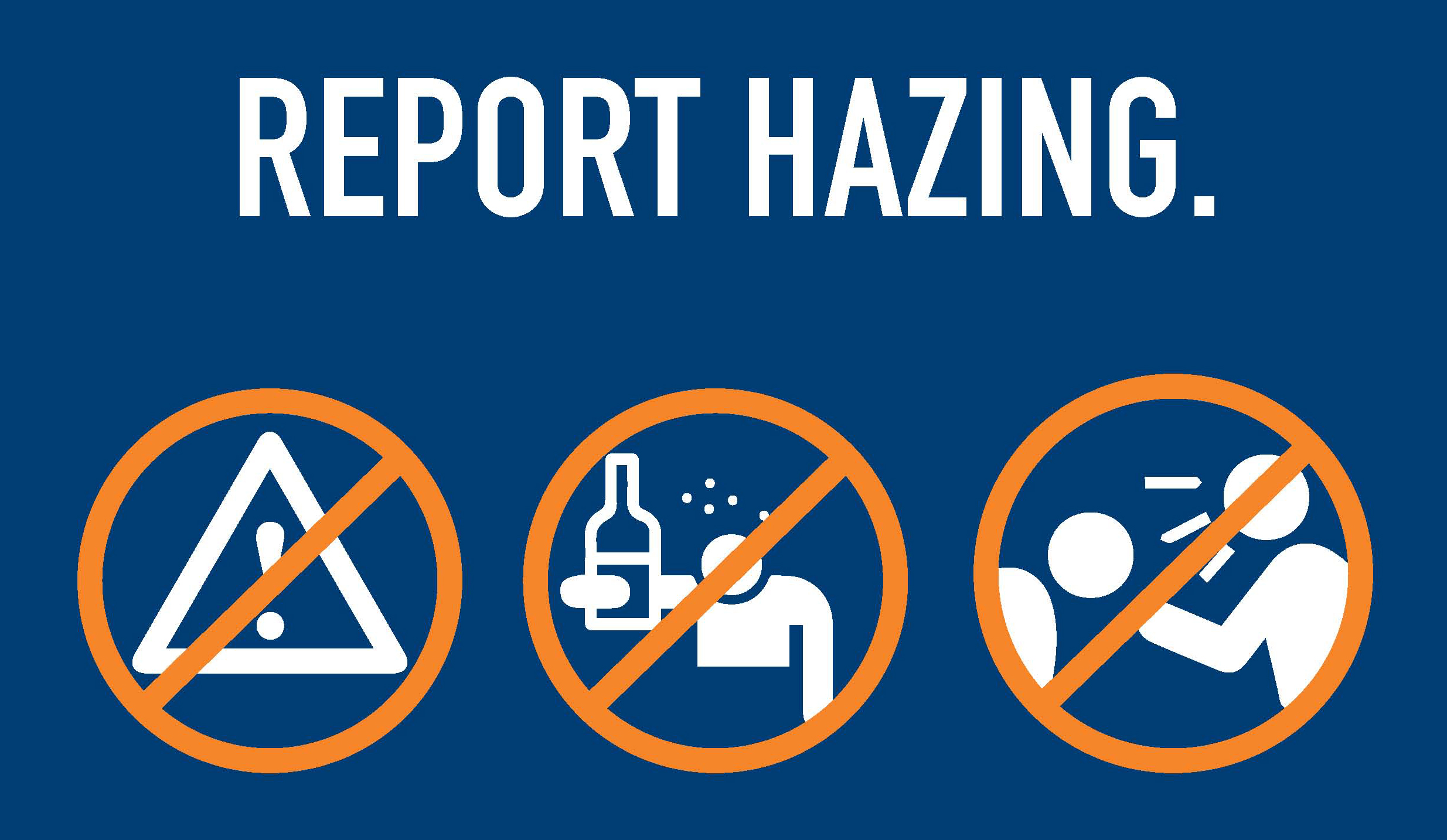
ANYONE CAN REPORT HAZING.
• University Police Department: SB100, 845-257-2222
• Anonymous Tip Line: 845-257-2230
• Student Activities and Union Services: SU211, 845-257-3025
• The Dean of Students: HAB702, 845-257-3261
• SUNY New Paltz Silent Witness Form
Click here for additional resources and to learn about National Hazing Prevention Week.
Anti-Hazing Policy Statement
Hazing is abusive, degrading, psychologically damaging, and may be life-threatening. It is unacceptable in all forms and has no place in the SUNY New Paltz community. Student groups, organizations, and athletic teams are important contributors to a vibrant and positive campus life and are expected to act in accordance with the Student Handbook (link) and to treat others with respect. Hazing by individuals and student organizations is prohibited in any form both on campus and off campus.
Definitions
Hazing
Any intentional, knowing, or reckless act committed by a person (whether individually or in concert with other persons) against another person or persons regardless of the willingness of such other person or persons to participate, that:
- Is committed in the course of an initiation into, an affiliation with, or the maintenance of membership in, a student organization; and
- Causes or creates a risk, above the reasonable risk encountered in the course of participation in the institution of higher education or the organization (such as the physical preparation necessary for participation in an athletic team), of physical or psychological injury. The following are non-exhaustive examples of conduct that cause or create such a risk:
- Whipping, beating, striking, electronic shocking, placing of a harmful substance on someone’s body, or similar activity;
- Causing, coercing, or otherwise inducing sleep deprivation, exposure to the elements, confinement in a small space, extreme calisthenics, or other similar activity;
- Causing, coercing, or otherwise inducing another person to consume food, liquid, alcohol, drugs, or other substances;
- Causing, coercing, or otherwise inducing another person to perform sexual acts;
- Any activity that places another person in reasonable fear of bodily harm through the use of threatening words or conduct;
- Any activity against another person that includes a criminal violation of applicable municipal, local, State, Tribal, or Federal law; and
- Any activity that induces, causes, or requires another person to perform a duty or task that involves a criminal violation of municipal, local, State, Tribal, or Federal law.
This definition is compliant with New York State law. Under New York State Penal Law, a person may be charged with hazing if, during another person’s initiation into or affiliation with any organization, they intentionally or recklessly engage in conduct that creates a substantial risk of and/or causes physical injury to another person. A criminal charge of hazing may result in a violation or misdemeanor.
For more detailed information regarding:
-
Reporting incidents of hazing
-
Options for private and confidential reporting
-
Amnesty policies related to hazing reports
-
The investigation process
-
Protections against retaliation
Please visit the Office of Student Conduct & Community Standards (link) website.
